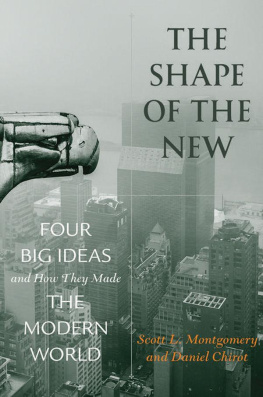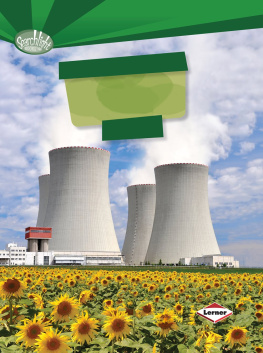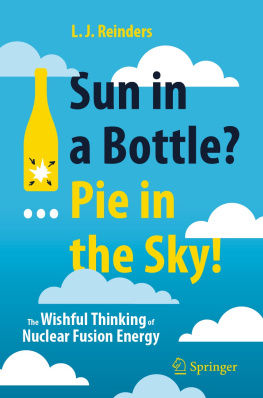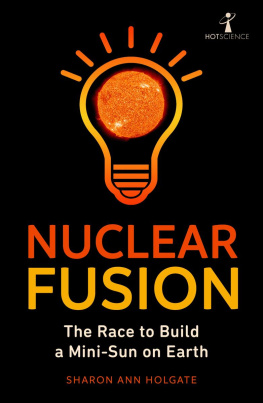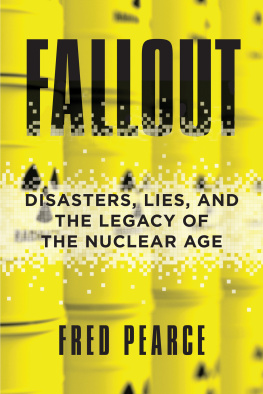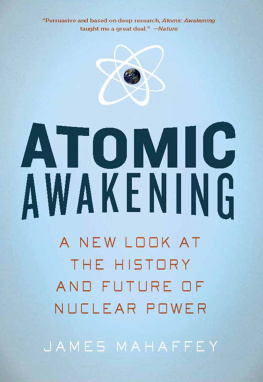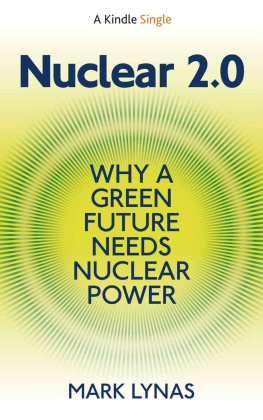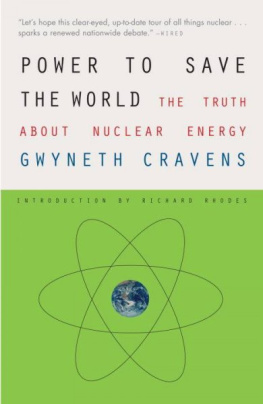Seeing the Light: The Case for Nuclear Power in the 21st Century
Nuclear power is not an option for the future, but an absolute necessity. Global threats of climate change and lethal air pollution, killing millions each year, make it clear that nuclear and renewable energy must work together as noncarbon sources of energy. Fortunately, a new era of growth in nuclear power is underway in developing nations, though not yet in the West. Seeing the Light is the first book to clarify these realities and discuss their implications for coming decades. Readers will learn how, why, and where the new nuclear era is happening, what new technologies are involved, and what this means for preventing the proliferation of weapons. This book is the best single work yet available for becoming fully informed about this key subject, for students, the general public, and anyone interested in the future of energy production, and thus, the future of humanity on planet Earth.
Scott L. Montgomery is a geoscientist, professor, and author who has published twelve books and many articles, essays, and papers both in the sciences and humanities. His most recent title, The Shape of the New (2015), with Daniel Chirot, was selected by the New York Times as one of the 100 Best Books of 2015. In addition to teaching at the University of Washington (Seattle), he has lectured widely in North America and Europe and is often interviewed for his expertise on energy-related topics. An earlier work, The Powers That Be: Global Energy for the 21st Century and Beyond (2010) has been widely used as a text in energy courses and translated into a number of foreign languages.
Ambassador (retired) Thomas Graham Jr. is Executive Chairman of Lightbridge Corporation, which develops new types of nuclear power fuel. He also does extensive part-time teaching at major universities, presently including Stanford University and Oregon State University. He lectures worldwide and appears before Congressional Committees. Since 2009, he has been a member of the International Advisory Board for the United Arab Emirates peaceful nuclear power program. Internationally known as a leading authority on international arms control and nonproliferation, he served as a senior US diplomat in every major international arms control and nonproliferation negotiation in which the US took part from 1970 to 1997.
Seeing the Light: The Case for Nuclear Power in the 21st Century
Scott L. Montgomery and Thomas Graham Jr.
University Printing House, Cambridge CB2 8BS, United Kingdom
One Liberty Plaza, 20th Floor, New York, NY 10006, USA
477 Williamstown Road, Port Melbourne, VIC 3207, Australia
4843/24, 2nd Floor, Ansari Road, Daryaganj, Delhi 110002, India
79 Anson Road, #0604/06, Singapore 079906
Cambridge University Press is part of the University of Cambridge.
It furthers the Universitys mission by disseminating knowledge in the pursuit of education, learning, and research at the highest international levels of excellence.
www.cambridge.org
Information on this title: www.cambridge.org/9781108418225
DOI: 10.1017/9781108289511
Scott L. Montgomery and Thomas Graham Jr. 2017
This publication is in copyright. Subject to statutory exception and to the provisions of relevant collective licensing agreements, no reproduction of any part may take place without the written permission of Cambridge University Press.
First published 2017
Printed in the United States of America by Sheridan Books, Inc.
A catalogue record for this publication is available from the British Library .
Library of Congress Cataloging-in-Publication Data
Names: Montgomery, Scott L., author. | Graham, Thomas, 1933 author.
Title: Seeing the light : the case for nuclear power in the 21st century / Scott L. Montgomery
and Thomas Graham Jr.
Description: Cambridge, United Kingdom ; New York, NY : Cambridge University Press,
2017. | Includes bibliographical references and index.
Identifiers: LCCN 2017023561| ISBN 9781108418225 (hardback ; alk. paper) |
ISBN 1108418228 (hardback ; alk. paper) | ISBN 9781108406673 (pbk.) | ISBN 110840667X (pbk.)
Subjects: LCSH: Nuclear energy. | Power resources Forecasting.
Classification: LCC TK9145 .M66 2017 | DDC 333.792/4dc23
LC record available at https://lccn.loc.gov/2017023561
ISBN 978-1-108-41822-5 Hardback
ISBN 978-1-108-40667-3 Paperback
Cambridge University Press has no responsibility for the persistence or accuracy of URLs for external or third-party Internet websites referred to in this publication and does not guarantee that any content on such websites is, or will remain, accurate or appropriate.
Contents
Preface and Acknowledgments
This book is the product of a diplomat and a scientist. Thomas Graham Jr. is a senior US diplomat who, from 1970 to 1997, helped negotiate every international arms control and nonproliferation agreement put forth by the world. Scott L. Montgomery is a geoscientist who spent twenty-five years in the energy industry before becoming a university professor and author. Ambassador Graham has devoted his entire adult life to reducing the threat of nuclear war. It is because of this work that he sees nuclear power as a key means to reduce another global threat that of climate change. Montgomery belonged to antinuclear organizations before being transmuted into an advocate by years of study and teaching, and by many discussions with nuclear professionals, health physicists, government officials, and, finally, by the implications of climate change.
Employing their backgrounds to hopefully good effect, the authors have sought to cover a wide array of subjects in this book that point up the troubled history, flaws, required re-evaluations, benefits, and necessity of nuclear power for the world. It is their firm belief that such coverage is required to make the reader a truly informed citizen in this domain. The task is significantly large but well within the bounds of possibility. It may even happen that nuclear professionals themselves will find novel and useful material in the pages that follow. We, the authors, would maintain that this is not entirely an accident.
A word about the text. While chapters have been written so that they can be read individually and not necessarily in order, the reader would do well to learn the basic material covered in (on nuclear energy and radiation) at an early point. Much later discussion draws on the knowledge and terminology covered there.
Acknowledgments are important to any book, but they are especially necessary to a work where so much direct aid has been given.
Thomas Graham wishes to thank Richard Rhodes, Pulitzer Prize- and National Book Award winning- author; Dr. KunMo Chung, two-time Energy Minister of Korea; and Dr. Karen Hallberg, Principal Researcher of the Argentine National Research Council, for their encouragement to become involved in the fight against climate change and the inspiration to be an author of this book. I also am grateful for the support of other signers of the 2015 Manifesto in support of the December 2015 Paris Conference on Climate Change: Dr. Hans Blix, former Director General of the International Atomic Energy Agency; Jayantha Dhanapala, former United Nations Under Secretary General for Disarmament; Ambassador Srgio Duarte, former United Nations High Representative for Disarmament Affairs; Kathleen Kennedy Townsend, former Lieutenant Governor of Maryland; and Jody Williams, 1997 Nobel Peace Laureate for the International Campaign to Ban Land Mines.


